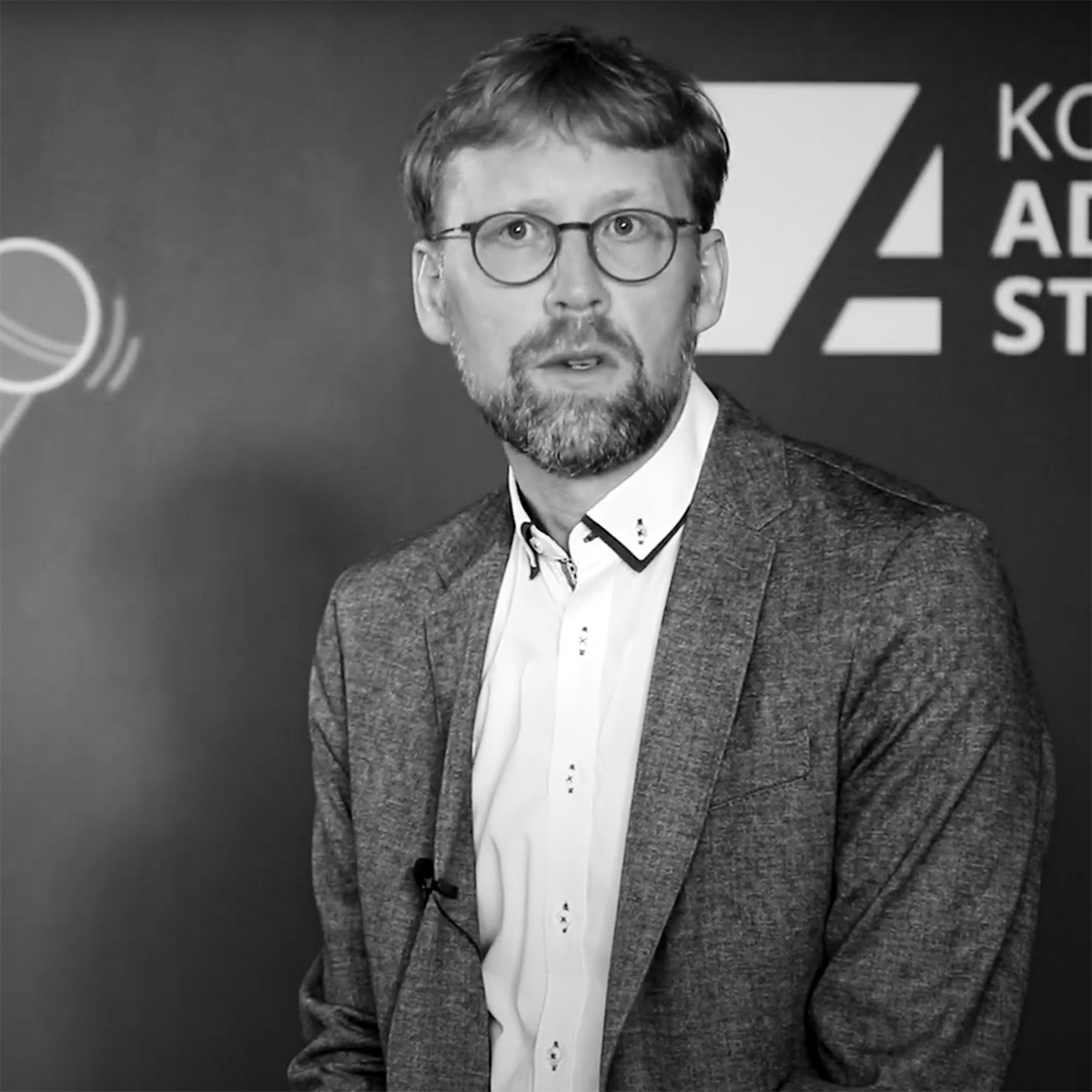Jihadist Terrorism in Europe
Developments and current challenges in Germany, Belgium and Austria
In another blow for the Islamic State, after the terrorist group lost its last territory in 2019, its leader was killed in an American raid in February 2022. But the recent heavy attack on a prison in Hasaka in north-eastern Syria shows that the group remains dangerous. It is also a reminder that a large number of foreign IS members remain in the region, including hundreds of EU nationals whose possible return poses a challenge to European security. The attacks in Austria, France and Germany in autumn 2020 have made one thing clear: radicalised lone wolf terrorists continue to pose a threat on the continent.
In March 2021, the Konrad Adenauer Foundation launched the research series “Jihadist Terrorism in Europe,” with the aim of analysing current activities of Islamist terrorists and assessing their threat to European citizens as well as the strategies of security agencies. Three studies have appeared so far, examining the past and present of jihadism in Germany, Belgium and Austria.
In the Crosshairs of Extremists
U.S. security agencies and the rise of domestic terrorism
The assault on the Capitol on January 6, 2021, has undeniably shown that armed extremists pose a real threat to democracy in the United States. In response to this development, the US government released the country’s first National Strategy for Countering Domestic Terrorism last June. A recent analysis of terrorist attacks in the US from 1994 to 2021 by the Center for Strategic & International Studies reveals a worrying trend.
Extremists at a Glance
Short profiles of extremist groups in the US and around the world
Islamist extremism
The ADF is a long-standing insurgent group with Ugandan roots that is currently operating in eastern Democratic Republic of the Congo. While the ADF’s ideology has historically contained some Salafi-jihadist elements, it has also recruited along secular ethnic lines. In 2019, the Islamic State claimed responsibility for an ADF attack, but the nature of their connection remains unclear.
JNIM, the “Group for the Support of Islam and Muslims,” is a coalition of Salafi-jihadist insurgent groups operating in the Sahel region of sub-Saharan Africa. Formed in 2017, JNIM has expanded its operating territory across West Africa while waging a sustained campaign of violence against civilians, local security forces, international militaries, and UN peacekeepers.
For nearly two decades, the East African al Qaeda affiliate commonly known as al-Shabaab, has endured as the most potent insurgent force in Somalia, at times controlling large portions of the country and building a global profile as a key actor in the broader global jihadist landscape.
The ISGS, an independent subgroup of Islamic State West Africa Province (ISWAP), operates in the Liptako-Gourma region of the Sahel – which includes portions of Burkina Faso, Mali, and Niger. In seeking to establish a Salafi-jihadist caliphate, it has inflamed community tensions and violently competed with other jihadist groups.
The ISKP is a branch of the Islamic State operating in Central and South Asia, emerging in 2014 with the defection of Tehrik-e-Taliban, al Qaeda, and Taliban fighters active in Afghanistan and Pakistan. It was responsible for the 2021 attack on Kabul airport, which killed at least 183 people.
Also known as “Army of the Pure,” Lashkar-e-Taiba is a Sunni Muslim militant insurgent group based in Pakistan, whose primary aim is the liberation of Jammu and Kashmir from Indian control. It achieved global notoriety in November 2008 after a series of attacks in Mumbai, which killed 116 and wounded more than 300 people.
Right-wing extremism
Across the United States and in parts of Canada, flyers with the words “Save your race, join The Base” began to appear in major cities and college campuses during summer 2019. The message serves as propaganda for The Base, a violent, right-wing extremist group that promotes a race war and the eventual creation of a white ethnostate.
A decentralised ideological network that believes in a coming second U.S. civil war – referred to as the “boogaloo” – and espouses anti-government and anti-law enforcement rhetoric. While some Boogaloo adherents promote white supremacist beliefs, others have provided security for and demonstrated alongside racial justice protesters, making the movement difficult to classify along traditional political lines.
U.S. militia groups recently captured the public’s attention following their presence at racial justice protests in 2020 and participation in the 2021 Capitol attack. Yet, the modern militia movement has operated for the past three decades, and the inspiration for these armed groups’ beliefs and methods date back to at least the mid-twentieth century.
An anti-government, right-wing political organisation committed to supporting and defending their interpretation of the U.S. Constitution against all enemies, both foreign and domestic. They are associated with the militia movement, an extremist umbrella organisation founded on the belief that the federal government is part of an evil conspiracy intent on stripping Americans of their natural rights and freedoms.
QAnon is a “big tent” conspiracy theory that emerged in the fringe corners of the Internet in 2017. It has since amassed millions of supporters, a small portion of whom have been motivated to conduct QAnon-inspired violence, leading the FBI to label it a domestic terrorism threat in 2019.
Left-wing extremism
Antifa is a contraction of the phrase “anti-fascist” and refers to a decentralized network of individuals that oppose fascism, racism, and other related ideologies. Motivated by various left-wing causes, such as communism and anarchism, Antifa extremists primarily use violence in the context of ideological clashes at demonstrations.
Anarchists in the United States promote an alternative societal structure—one opposed to the existence of the U.S. government. Militants have targeted individuals and institutions that represent symbols of power or the authority of the state. In 2020, anarchist attacks took place at protests and were intended to protect protesters from being arrested or to harass law enforcement.
Eco-extremism
Animal rights extremists, a subset of ecoterrorists, aim to end the real or perceived abuse and exploitation of animals through sabotage and violence. The number of attacks in the U.S., usually targeting businesses as well as government and educational facilities rather than people, has notably decreased since its peak in the late 1990s.
Radically Connected
Facebook’s failure to combat Covid-19 disinformation
Facebook has long been criticised for not doing enough to combat disinformation on its platform, most recently after the revelations of whistle-blower Frances Haugen in autumn 2021. During the pandemic, misinformation about the virus and vaccines was deliberately spread via social media. The Institute for Strategic Dialogue (ISD) conducted a case study to investigate how Facebook tackles Covid-19 disinformation.
Extremists and the online gaming community
Video games have become the most lucrative branch of the entertainment industry, with a global revenue more than twice as high as that of the music and film industries combined. More than ever, socialising in online spaces has become part of our everyday lives and the gaming community has been a pioneer in this respect. Extremists are known to use the internet, especially social media and online platforms, to recruit and radicalise new members, but so far little research has been done on the role that online gaming plays in their strategies. With a new series of studies, the Institute for Strategic Dialogue has set out to fill this gap.
Negotiating with Islamists
A way out of the conflict in Mali?
A decade on, there is still no end in sight to the conflict in Mali. The continuing presence of international troops and support for the Malian armed forces has so far not led to military victory over the jihadists, who continue to control parts of the country. Recently, tensions between the military junta and their international partners have intensified since the first elections after the coup in August 2020, originally scheduled for the beginning of this year, were cancelled. In February 2022, France announced the end of its military operations, a move that also calls into question the future of Germany’s involvement in the EU and UN missions. In light of the stalemate in which the conflict seems to be locked and the rising civilian death toll, the International Crisis Group asks: Is it time to start a dialogue with the jihadists?
Divided Societies
Political Polarisation in Georgia and Germany
Democratic societies depend on the free expression and sincere dialogue between differing opinions. Opposing political beliefs are thus not an obstacle for democracies but rather their prerequisite. However, when conflicts harden and political extremes clash irreconcilably, political polarisation threatens to deprive democracy of the air it needs to breath. Two studies examine the situation in two countries in Europe’s periphery and centre – Georgia and Germany.
Georgia – A Hostage to Polarisation
In July 2021, protests by far-right extremists against the country’s first pride parade turned violent. After the death of a journalist, thousands protested and demanded the resignation of the prime minister, who had spoken out against the parade. The social tensions in the republic located in the Caucasus, torn between traditional values and an orientation towards the West, are instrumentalised and intensified by a politics of polarisation. A working paper by Carnegie Europe explains the current situation, its background and points out the dangers and challenges for Georgian democracy.
Political Polarisation in Germany
The pandemic has exposed and exacerbated social divisions, it is often said. But how do things really stand in Germany? To what extent and in what ways is German society politically polarised? Based on several representative surveys, a study by the Konrad Adenauer Foundation sheds light on the situation in the country before and after the pandemic.
Guantánamo at 20
Digital Extremism
New challenges for Brazil’s democracy
With a population of more than 200 million people, Brazil is by far the largest democracy in South America. As Jair Bolsonaro’s victory in the divisive election of 2018 has shown, the country’s public discourse is highly polarised. Parts of the internet have become a breeding ground for extremism and disinformation in Brazil, as they have for other countries. The project “Digital Democracy. Digitization and the Public Sphere”, a cooperation between the Fundação Getulia Vargas and the German Embassy in Brasília, aims to develop strategies for understanding and combating new challenges to Brazilian democracy, characterised by digital extremism and its social consequences.
Contributors to this issue were:
Team KALUZA + SCHMID Studio, Bogdan Miftakhov, Johannes Sudau, Kristin Wesemann, Janine Zimmermann
Sources
(1) Steinberg, Guido. Islamistischer Terrorismus in Europa. Dschihadismus in Deutschland. Konrad-Adenauer-Stiftung, Dezember 2021
Van Ostaeyen, Pieter und Guy Van Vlierden, Islamistischer Terrorismus in Europa. Dschihadismus in Belgien, August 2021
Steinberg, Guido. Islamistischer Terrorismus in Europa. Dschihadismus in Österreich. Konrad-Adenauer-Stiftung, März 2021
(2)
Jones, Seth G., Catrina Doxsee, Grace Hwang und Jared Thompson. The Military, Police, and the Rise of Terrorism in the United States. Center for Strategic & International Studies, 12. April 2021
Dreisbach, Tom, Meg Anderson und Barbara Van Woerkom. “5 takeaways from the Capitol riot criminal cases, one year later.“ NPR, 5. Januar 2022
(3) Center for Strategic & International Studies. Examining Extremism.
(4)
Gallagher, Aoife, Mackenzie Hart und Ciarán O’Connor. Schlechter Rat: Eine Fallstudie über das Versagen von Facebook bei der Bekämpfung von ärztlicher COVID-19-Desinformation. Institute for Strategic Dialogue, 21. Dezember 2021
Davey, Jacob. Gamers Who Hate: An Introduction to ISD’s Gaming and Extremism Series. Institute for Strategic Dialogue, 12. August 2021
(5) International Crisis Group, Mali: Enabling Dialogue with the Jihadist Coalition JNIM, 10. Dezember 2021
(6)
Gegeshidze, Archil und Thomas de Waal. Divided Georgia: A Hostage to Polarization. Carnegie Europe, 8. Dezember 2021
Roose, Jochen. Politische Polarisierung in Deutschland. Konrad-Adenauer-Stiftung, 22. November 2021
(7) Tayler, Letta und Elisa Epstein. Legacy of the “Dark Side”: The Costs of Unlawful U.S. Detentions and Interrogations Post-9/11. Watson Institute for International & Public Affairs, 9. Januar 2022
(8) Fundação Getulio Vargas. Digitale Demokratie. Digitalisierung und Öffentlichkeit in Brasilien



 17 min 39 s
17 min 39 s
